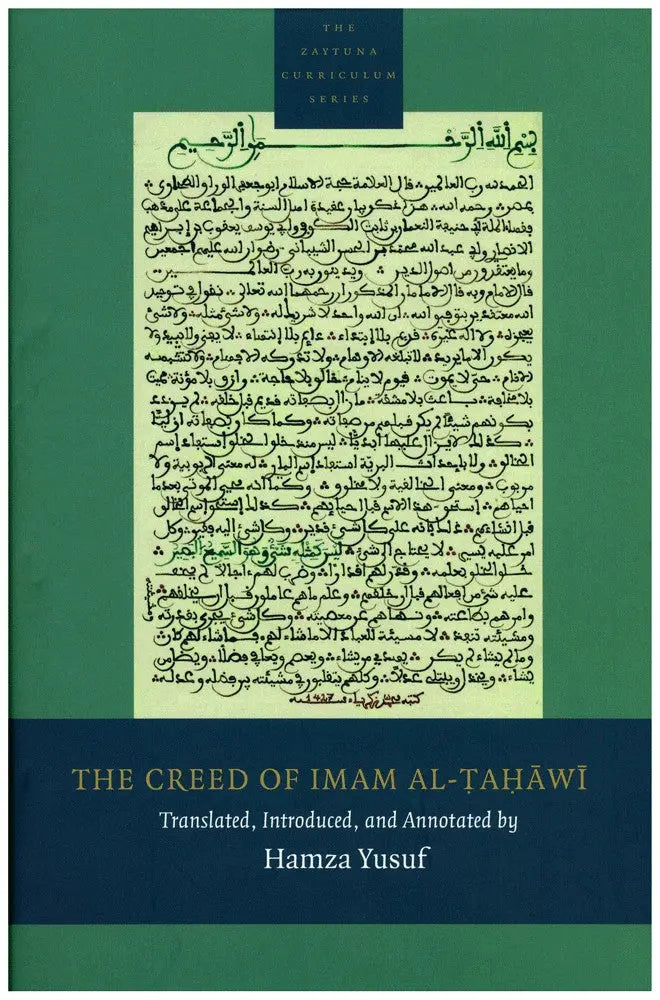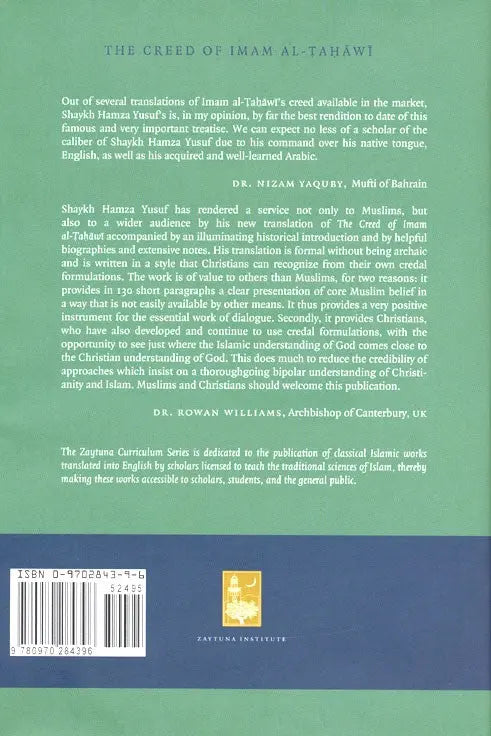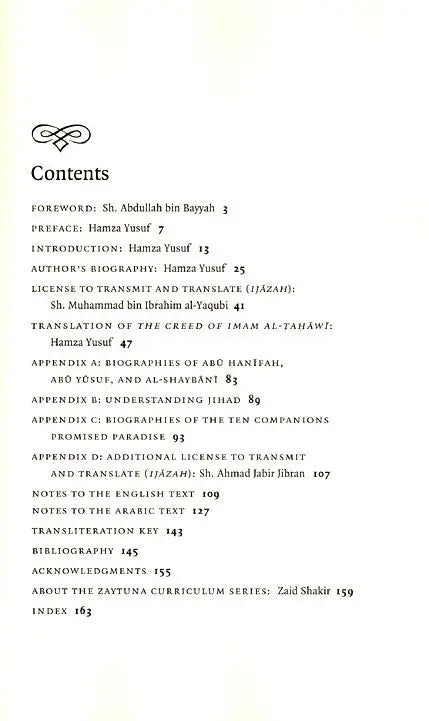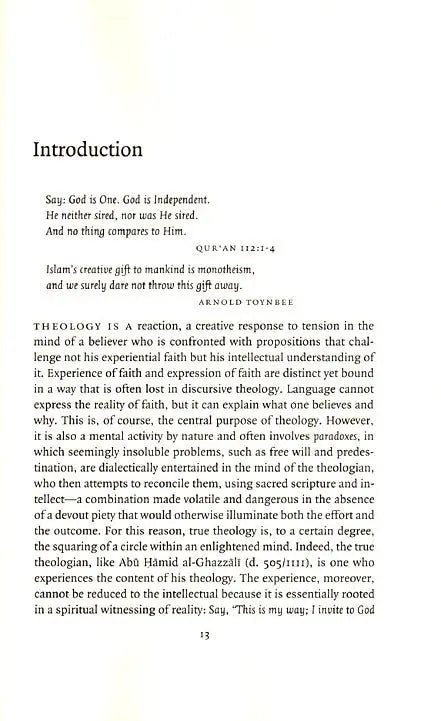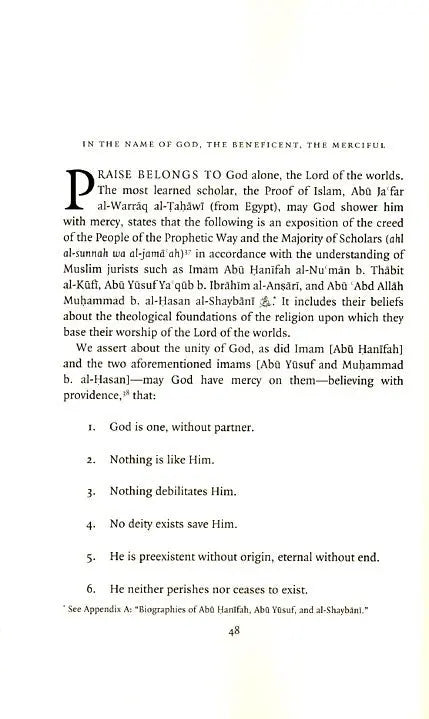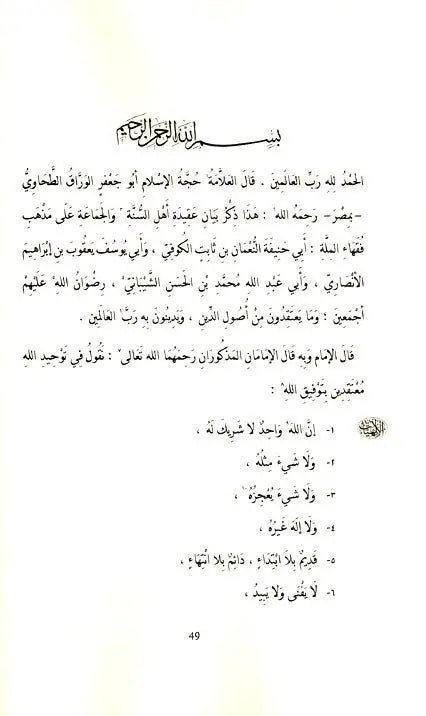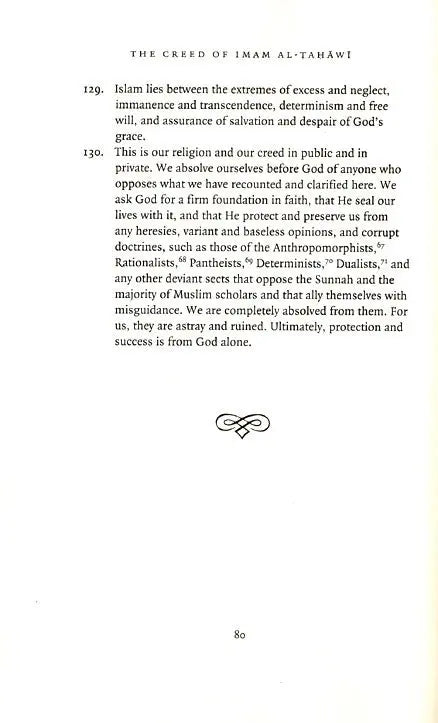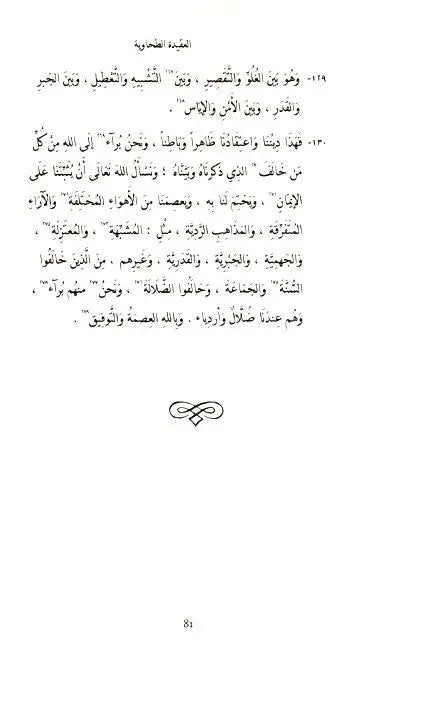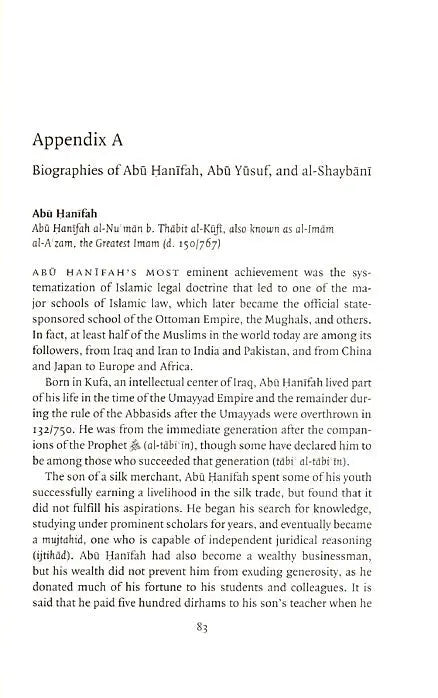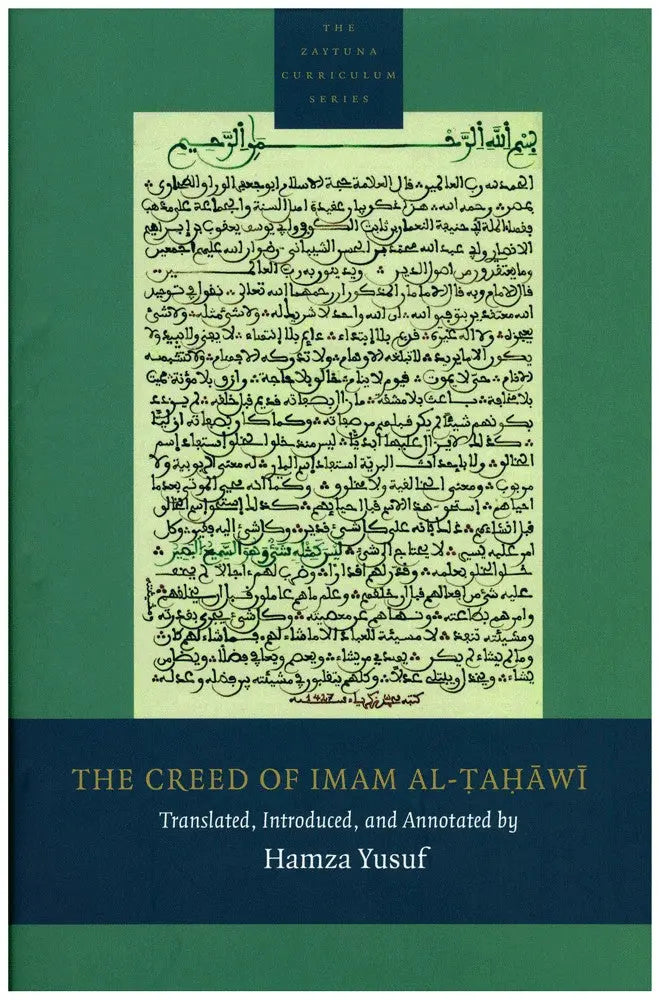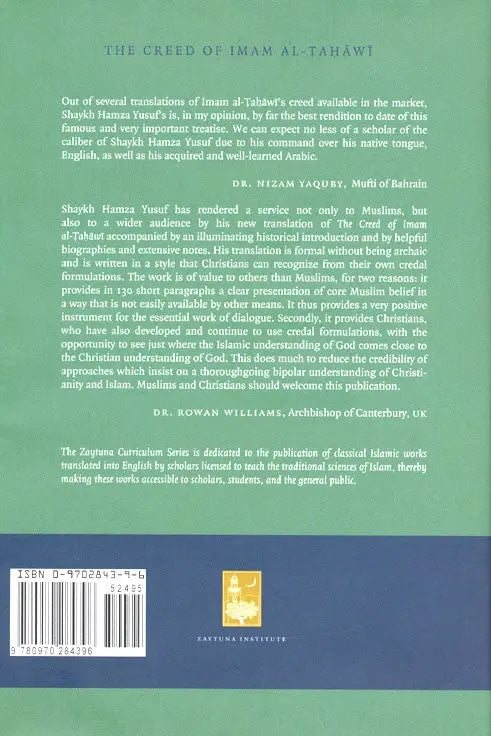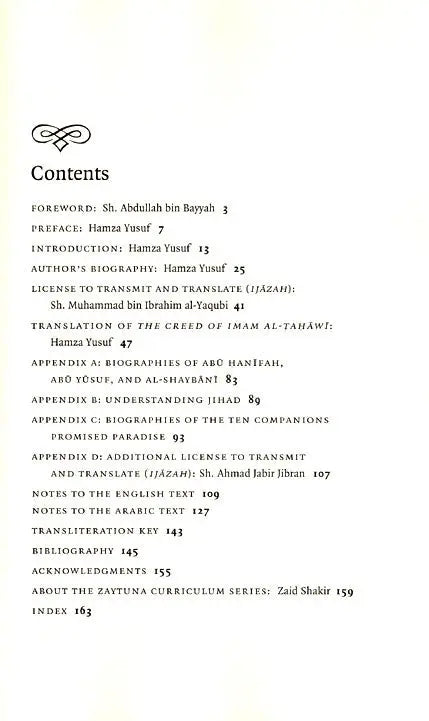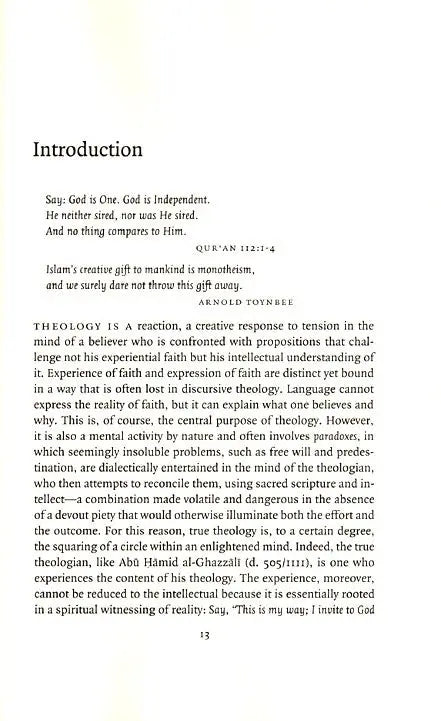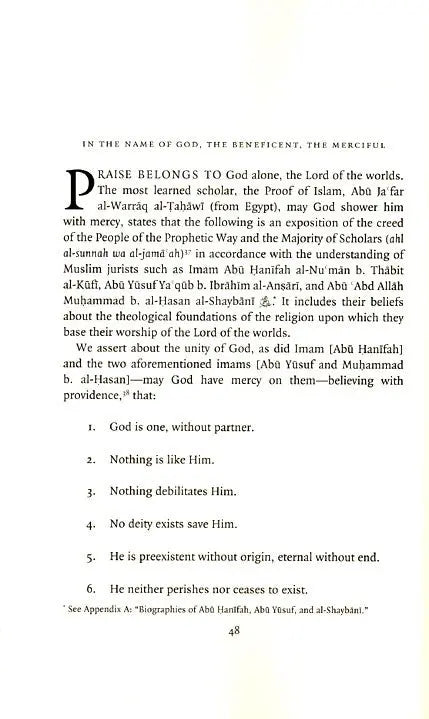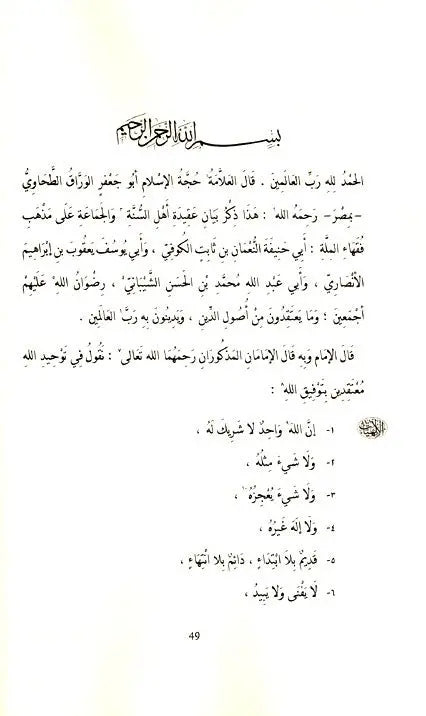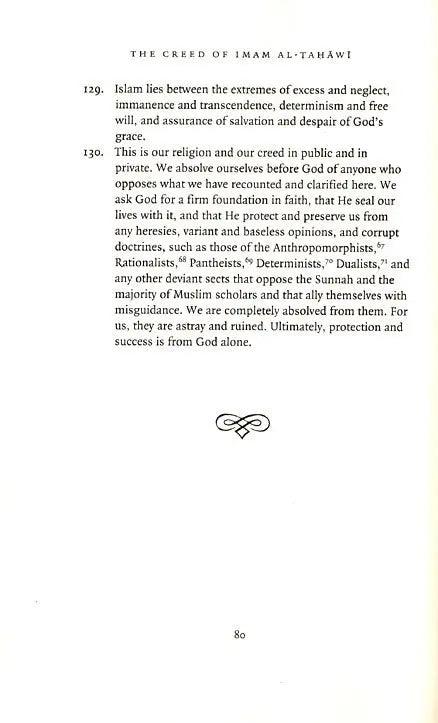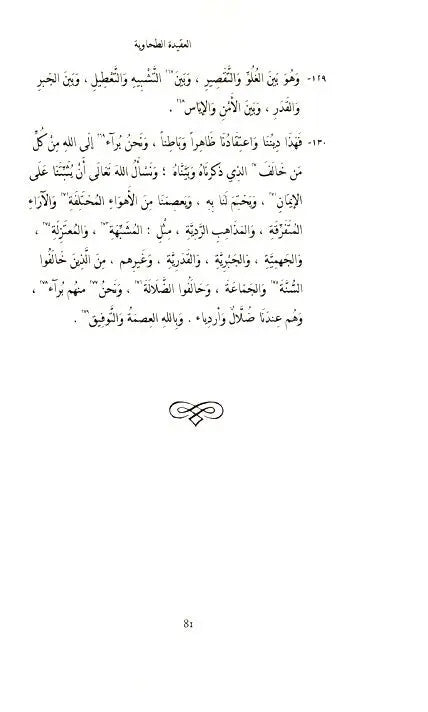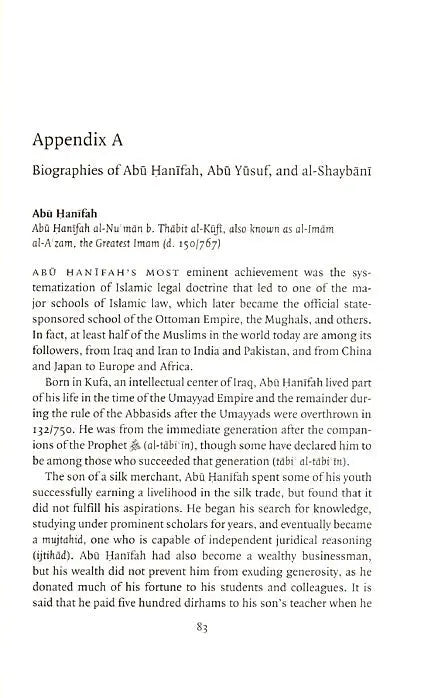About The Book
In an age of bewildering spiritual and intellectual confusion, creed has never been more important. Every Muslim is obliged to learn it and is promised protection from deviant beliefs by following the unassailable texts of the scholastic community of Islam. Of them all, The Creed of Imam al-Tahawi is the simplest, the most effective, and the least controversial.
It serves as a sound basis for Islamic faith and is the most reliable of the early articulations of Muslim belief. Because Imam al-Tahawi avoided involutedly theological issues and systematically presented the most fundamental aspects of dogmatic theology, his creed has achieved an unusual degree of acceptance in the Muslim milieu.
In the thousand years since it was written, many great Muslim scholars have penned commentaries on it. It is still studied throughout the Muslim world and increasingly in the West.
About The Author
Imam Abu Ja'far al-Ṭaḥawi or simply al-Ṭaḥawi (843 or 853 to 933) was a famous Sunni Islamic Scholar who followed the Hanafi madhhab.
Taḥawi was born in the village of Taha in upper Egypt to an affluent family. He began his studies with his maternal uncle Isma`il ibn Yahya al-Muzani, a leading disciple of Shafi`i. When Tahawi was about 20 years old he abandoned the Shafi'i school and transferred to the Hanafi School.Different versions are given by his biographers of his conversion to the Hanafi school, but the most probable reason seems to be that the system of Abu Hanifa appealed to his critical insight more than that of Shafi'i.Tahawi then studied under the head of the Hanafis in Egypt, Ahmed ibn Abi Ibrahim, who had himself studied under the two primary students of Abu Hanifa, Abu Yusuf and Muhammad al-Shaybani. Tahawi next went to Syria in 268/882 for further studies in Hanafi Law and became the pupil of the chief judge of Damascus.
Tahawi gained an extraordinary knowledge of hadith in addition to Hanafi jurisprudence and consequently his study circles attracted many scholars who related hadith from him and transmitted his works. Among them were al-Da'udi, the head of the Zahiris in Khurasan and al-Tabarani well known for his biographical dictionaries of hadith transmitters.
Tahawi's extraordinary knowledge of hadith in addition to Hanafi jurisprudence is evident from his significant book Kitab ma'ani al-athar and his concise creed (aqida) has also achieved a prominent place among most Sunni scholars to this day.
The scholars of his time praised him and mentioned him as being a scholar of Hadith (Muhaddith), one whose report was reliable and an established narrator. He was viewed as a distinguished and highly proficient writer and became known as the most knowledgeable of fiqh amongst the Hanafis in Egypt. This was even though he had a share in the fiqh of all of the madhabs of fiqh and hadith, and he knew of the various sciences of Islam. Ibn Yoonus said of him, "At-Tahaawee was reliable, trustworthy, a Faqeeh, intelligent, the likes of whom did not come afterward."
Appreciation for The Creed of Imam al-Tahawi
Out of several translations of Imam al-Tahawi's creed available in the market, Shaykh Hamza Yusuf's is, in my opinion, by far the best rendition to date of this famous and very important treatise. We can expect no less of a scholar of the caliber of Shaykh Hamza Yusuf due to his command over his native tongue, English, as well as his acquired and well-learned Arabic.
- Dr. Nizam Yaquby, Mufti of Bahrain
Shaykh Hamza Yusuf has rendered a service not only to Muslims, but also to a wider audience by his new translation of the Creed of Imam al Tahawi accompanied by an illuminating historical introduction and by helpful biographies and extensive notes. His translation is formal without being archaic and is written in a style that Christians can recognize from their own credal formulations. The work is of value to others than Muslims, for two reasons: first, it provides in 130 short paragraphs a clear presentation of core Muslim belief in a way that is not easily available by other means, thereby providing a very positive instrument for the essential work of dialogue. Secondly, it provides Christians, who have also developed and continue to use credal formulations, with the opportunity to see just where the Islamic understanding of God comes close to the Christian understanding of God. This does much to reduce the credibility of approaches which insist on a thoroughgoing bipolar understanding of Christianity and Islam. Muslims and Christians should welcome this publication.
- Dr. Rowan Williams, Archbishop of Canterbury, UK
Hamza Yusuf's Creed of Imam al-Tahawi is an important contribution to scholarship and to Muslim self-understanding. This fluid and accurate translation provides access and insight into a major scholastic work that sets out core Islamic beliefs/doctrines. It will be welcomed by Muslim and non-Muslim readers alike.
- Dr. John L. Esposito, Director, Prince Alwaleed Bin Talal Center for Muslim-Christian Understanding, Georgetown University, Washington, DC.
Students of Islam often have little exposure to the basic theological creeds around which communal and sectarian boundaries were formed for many centuries. Ordinary Muslims did not study advanced theological treatises, but memorized and defined themselves by the pithy dogmas advanced in texts like al-Tahawi's creed. These creeds address universal questions, as well as issues particularly relevant to the political and social context of their formulation. Imam al-Tahawi's creed is therefore useful both as a record of core and enduring principles of Sunni theology, as well as a glimpse into some of the dynamics of the early formative period of Islamic thought. Hamza Yusuf's eloquent and accurate translation is especially helpful as it is accompanied by the well-edited original Arabic text.
- Dr. Ingrid Mattson, President, Islamic Society of North America and Professor of Islamic Studies, Hartford Seminary, Connecticut.

